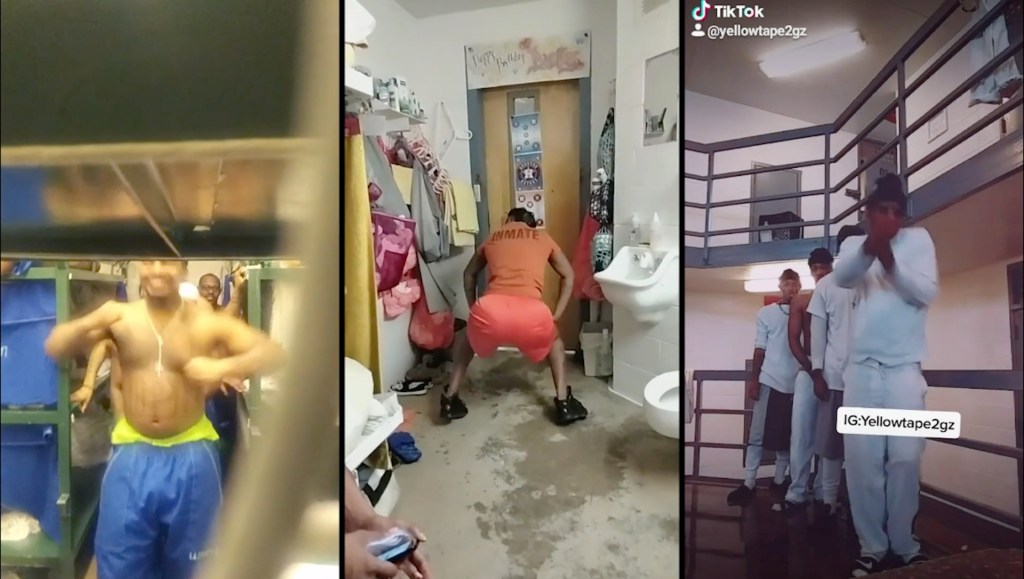Want the best of VICE News straight to your inbox? Sign up here.
In the past year, people in prison have posted TikTok videos dancing with their cellmates, showing off their commissary purchases, giving tutorials for heating food or making phone chargers, and just hanging out.
Videos by VICE
Like most other TikTok users, they’re combating boredom or trying to make a name for themselves online. But outside the walls of the prison, the viral videos are helping to fight misconceptions of mass incarceration in the U.S.
“People became so hyped up about this because they got to see what it’s like behind the wall,” Kevin Smith told VICE News. “It’s like a whole ’nother world.”
Smith received a work release from Florida’s South Bay Correctional Facility in April after finishing a seven-year sentence for falsely impersonating a police officer. He only started posting videos on TikTok a week before his release, figuring he’d be out before anyone caught on.
Cell phones are contraband in prisons. Lawmakers argue the policy prevents crimes from being orchestrated through prison walls. But their motivations might be to not only protect the public but also hide horrible prison conditions from them.
Some popular TikToks, for example, showcase the less-than-appetizing prison canteen food and the bleak living conditions—as well as how prisoners transform everyday objects to make the most of them. They cook their food with bed frames turned into hot plates or lighting fixtures wired up to boil hot water—even though they risk electrocution.
“It’s not any place that you want to end up,” Smith said. “I knew that it was a bunch of kids on there, so I kind of wanted to post it as like a reality of what would happen if you go to prison.”
The punishment for getting caught with a phone ranges from having visitation rights taken away to time in solitary confinement. Some prisoners even risk getting years added onto their sentences. Smith maxed out his sentence to eight and a half years, after being caught with a cell phone several times and sent to solitary.
But the videos are one of the few times the public can see the everyday humanity of prison life, especially through the lens of a younger incarcerated generation. And the need for connection far exceeds the risks taken, according to Bianca Tylek, the founder and executive director of Worth Rises, a national criminal justice advocacy organization.
“People on the outside are seeing people on the inside as people, many times who are young, as people who are charismatic, as people who experience joy and pain and all of these same sentiments that we do every day,” she said. “And I think that’s really, really critical.”
More
From VICE
-

Photo Illustration by Omar Marques/SOPA Images/LightRocket via Getty Images -

-

VICE host Matt Shea with Andrew Tate, before their relationship went south. Credit: VICE/BBC -

TikTok
